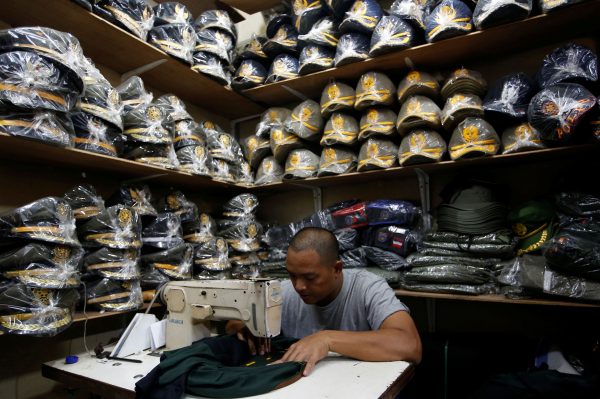Law 5/2014 on the State Civil Apparatus mandates that promotions must be based on competency. Promotions at the higher echelon levels I and II require a committee to conduct an open selection process. Promotions at the lower echelon III and IV levels occur through direct appointment by the head of local government, who should consider the competency and track record of a bureaucrat before appointing them.
Under the law, bureaucrats should only be relocated to support an agency’s performance, and the decision should be impartial. The discontinuation of a bureaucrat’s position should only happen if they resign, are temporarily suspended, or do not fulfil the administrative requirements of the position. The watchdog KASN was created in 2014 to oversee the implementation of this law and investigate breaches.
Ongoing appointment problems demonstrate that the law has not been successful. Similar to previous laws (8/1974 and 43/1999), Law 5/2014 still leaves the bureaucracy vulnerable to unreasonable political influence. It relegates a bureaucrat’s career under the authority of the head of local government, who has de facto full power to promote, relocate or discontinue bureaucrats.
This is because KASN’s authority is limited to supervision — it has no power to override decisions. If KASN finds a legal breach, it can only collect information about it and provide recommendations to the head of local government.
Politicians may intervene in the appointments process of the Indonesian civil service in several ways. First, the head of the local government has the authority to decide selection committee members (two high-level officials and one academic). Committee members may come from the head of the local government’s network, allowing them to control the outcome of the process.
Second, heads of local government can ignore the requirements for relocation and discontinuation. A bureaucrat can protest a decision to KASN, but the watchdog can only make recommendations in their representations to the local government.
The root of this problem is the dominance of patronage democracy in Indonesia — the auctioning of government services to secure electoral support.
Elections have become the principal manifestation of clientelism among bureaucrats. A recent study has found evidence that, in local elections, politicians offer promotions to bureaucrats in exchange for their support. Bureaucrats who support the losing candidate may end up relocated or discontinued from their current position through demotion or termination. Office-buying, where a bureaucrat pays cash to obtain a promotion, is a serious ongoing issue.
Bureaucrats can wield a significant influence in Indonesian politics. Those who have the capital often run in local elections, and some are elected at the provincial or regency and city levels. But the pattern of patronage between elected politicians from a bureaucratic background and a non-bureaucratic background is the same.
The system was designed for an apolitical bureaucracy to be accountable to elected politicians. Political authority over bureaucratic appointments is supposed to ensure that the administration is implementing electoral demands, but the bureaucracy itself is not meant to become a politicised body. Processes to manage this exist on paper, but there is no effective enforcement mechanism. Rampant patronage has undermined and corrupted the system as a result.
In Banten Province, Governor Wahidin Halim ignored the selection results for the position of head of the provincial education office (echelon II) and conducted a second selection with his intended candidate. KASN was aware, but could only recommend that the governor should act impartially. It did not follow up the investigation further.
In Kuningan Regency, West Java, the regent Acep Purnama set up a selection committee to prioritise his own candidates, giving them higher grades or distributing selection questions to some in advance. The disadvantaged candidates protested through the media, but KASN did not investigate.
In Batubara Regency, North Sumatra, the regent Zahir discontinued a bureaucrat from his position as head of poverty alleviation and promoted his own personal candidate. The former bureaucrat was removed for refusing to obey an illegal order from the regent to set up a poverty alleviation program in a way that would benefit his family business. KASN recommended that the regent reinstate the former bureaucrat, but he has not yet complied.
All these cases happened only last year and demonstrate that Indonesian heads of local government have an unreasonable amount of discretion over the careers of bureaucrats. They can manipulate the selection process and change the results based on personal desires. KASN is toothless in the face of corruption.
Indonesia’s ineffective bureaucratic laws continue to encourage unfair appointments and serve only to politicise Indonesia’s bureaucracy. Revisions need to apportion more authority to the independent body.
Adfin Rochmad Baidhowah is a Researcher in the Faculty of Politics and Governance at Institut Pemerintahan Dalam Negeri (the Institute of the Governance of Home Affairs) (IPDN), Indonesia.

